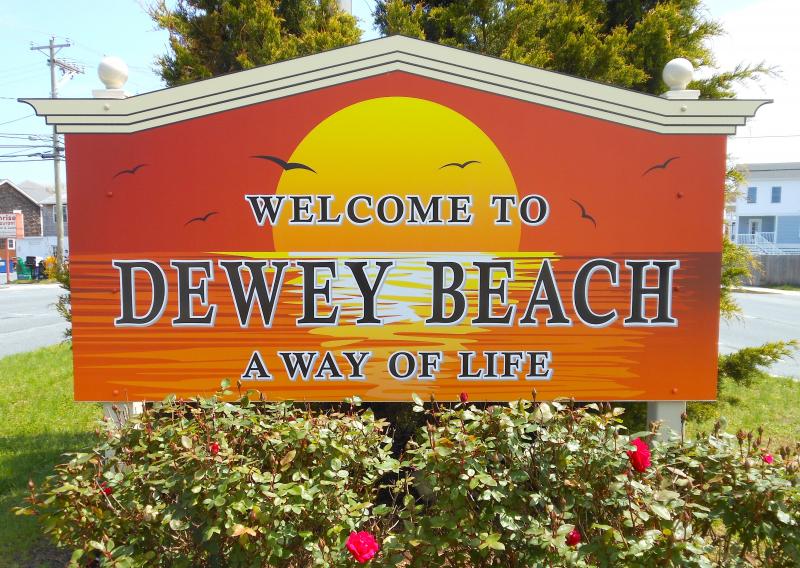After some disagreement over the effective date of the ordinance, Dewey Beach commissioners voted 3-2 on March 2 to impose a 1.5 percent lodging tax on hotels, motels and tourist homes starting July 1.
Commissioner David Jasinski said enacting the tax is the right thing to do, but making it effective April 1 would be too early given that establishments aren’t yet able to operate at full capacity. He suggested the tax be implemented no earlier than July 1 and no later than Jan. 1, 2022.
Commissioner Gary Persinger said he supported the Jan. 1 effective date, and suggested the town follow the state’s practice of exempting permanent residents of a hotel or motel. He questioned whether the party responsible for paying the tax should be noted as the operator, not owner, of the rental property.
The use of the term person is meant to be broad, Town Counsel Fred Townsend said, and would apply to operator, manager or agent as well as the owner, and that language in the ordinance needs to enable the town to pursue owners for unpaid taxes. He said he would add an exception to the ordinance that would exclude permanent residents from paying the tax.
Commissioner Bill Stevens said he supported implementing the tax on April 1. The tax would not hurt hotels, he said; it targets tourists who use town services and leave. He recommended that income from the tax go into the general fund rather than a restricted fund.
“We live in a resort town,” Stevens said. “There's no resort fee, there are no tags, there are no funds that help the town run the day-to-day operations. If you have a $300 hotel room and you're putting on a 1.5 percent tax, my little calculator says it’s [the tax] $4.50, and you can't buy a beer in this town for $4.50.”
Mayor Dale Cooke said everyone had originally expected the tax to start April 1, the beginning of the town’s fiscal year. He said January 2022 is too far away.
“I don’t see the logic of how it could possibly hurt hotels,” Cooke said. “They do not pay the fee themselves; they pass it through.”
Other towns have a lodging tax double what commissioners are proposing, Cooke said, and if he thought the tax would hurt hotels, he wouldn’t vote for it. The town receives a 3 percent income from every private home listed for rental, but right now receives nothing from hotels, he said.
Town Manager Bill Zolper said Rehoboth’s lodging tax is 3 percent, Bethany’s is 3.25 percent, and Dewey’s is zero. A 1.5 percent lodging tax won’t hurt businesses, he said.
“Right now they pay nothing toward the town, but they do get the services of the police, lifeguards, and everything else that goes into the town, the trash cans that are picked up,” Zolper said. “You're getting a good deal at 1.5 [percent] when you're coming into a town at $4.50 a night.”
The town needs the income, Zolper said, and he doesn’t want to rely on the military for a new police car, referencing the town’s participation in the military surplus equipment program. Five years down the road, he said, he would like to consider a new town hall and police station, and the income would help.
Jasinski motioned to make the ordinance effective July 1; Persinger accepted, but said he disagreed with the date. He asked if Jasinski would amend the motion to put tax proceeds in a capital improvement fund, which he said the town does not have and critically needs.
Cooke said he preferred the income not be designated for a particular fund, but if it is, then putting it into capital and infrastructure funds would be a good idea because of the town’s drainage issues.
Stevens suggested income go into the general fund and that commissioners should ask the budget and finance committee to put together a long-term capital improvement plan.
Jasinski said he would not amend the motion because commissioners had so many different opinions. The motion passed 3-2, with Cooke, Jasinski and Stevens voting for, and Persinger and Commissioner Paul Bauer voting against.
Persinger said he thought Jan. 1, 2022, should be the earliest effective date and that revenue should fund capital improvements. Bauer said he preferred an Aug. 1 effective date because it would give hotels more time to rebound.





















































